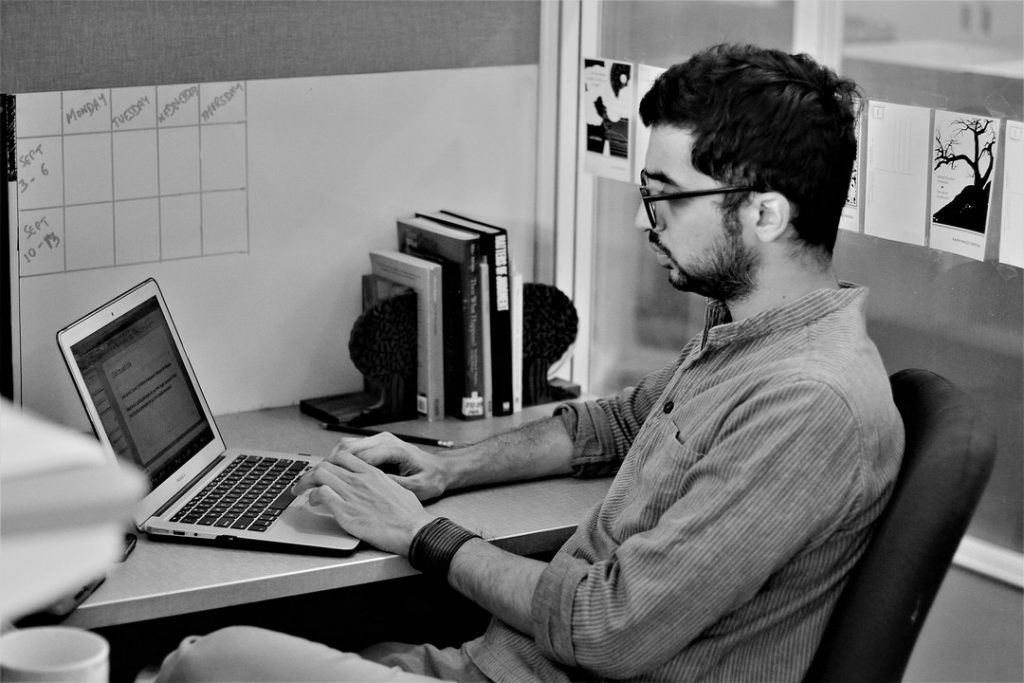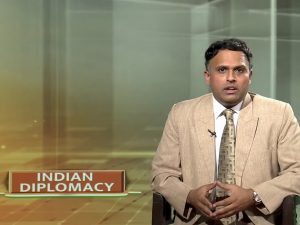
“History owes the LGBT community an apology for their sufferings,” said Justice Indu Malhotra, a part of the five-judge bench, which delivered the landmark judgement to decriminalize homosexuality in India. The battle against the draconian section 377 went on for decades. From the petitioners, lawyers in the court, activists and all LGBTQ individuals and allies who fought the good fight were its heroes. Amongst them is Prof. Danish Sheikh, whose research and writing were cited in the Supreme Court during the Navtej Singh Johar and Ors Vs. Union of India judgment.
We spoke to Prof. Sheikh about his involvement with LGBT rights issues in the country, the comprehensive scope of verdict that goes well beyond the rights of the community, and his efforts at the law school to make legal aid accessible to people through the powerful medium of theatre. “It’s clear that the verdict is a transformative moment for us as a society. This is a victory for civil liberties across the country,” his passionate words set the tone for the heartfelt interview.
“To deny people their human rights is to challenge their very humanity” – Nelson Mandela

Driven by the fight for human rights, Prof. Sheikh began working with Alternative Law Forum (ALF) in Bangalore, after his BA LLB (Honours) from NALSAR University of Law, Hyderabad. His work at the forum primarily focused on access to knowledge, free speech and LGBTQ rights. “I was part of the litigation team challenging Section 377 in the Supreme Court in 2012. I had the chance to assist in drafting, research work, and also be a part of the hearings. We lost that case, but it confirmed to me that this would be an important strand of my work in the future,” he said.
Solid ground research cited in revolutionary judgement
The loss of 2012 never deterred him, it only strengthened his resolve. Prof. Sheikh went on to complete his LLM from University of Michigan, Ann Arbor and came back to ALF more assured, equipped with knowledge and a stronger resolve. He joined International Commission of Jurists, an NGO that works on access to justice and human rights. “I was commissioned to carry out research across cities, meeting 150 LGBTQ individuals, police officials and judges. This report detailing the difficulties for LGBTQ community to access justice system was cited by the Supreme Court in the Navtej Singh Johar verdict. It was a great moment for me because it was culmination of a lot of work including the EPW article, which looked at questions of privacy rights for LGBTQ community, especially after Supreme Court’s Right to Privacy ruling,” he explained.
What after 377?
Prof. Sheikh asserts that part of his work is to push past the arguments of public private divide. He strongly believes that it’s important to have a practice of law that blends the personal with political, which is what the privacy arguments did. It’s been more than three months since the verdict and he looks at what lies ahead. “Judge Rohinton Nariman’s judgement says that the Government should disseminate information to media and sensitize, especially the police officials. The judgement has been crucial also because it says that privacy applies to public places and the police has to ensure that people can exercise this right without fear,” he adds thoughtfully.
Fight for justice through theatre

A leading human rights commentator in renowned publications, Prof. Sheikh is also known for his achievements in creative writing and theatre. One of the courses he teaches at JGLS is a clinical course called, ‘The Legal Theatre,’ which focuses on questions of gender, sexuality and human rights. “The idea is to take something that is often inaccessible and use theatre to make it accessible to communities that need them. Students engage with me for over a year to create smaller plays, street theatre, which can be used with communities as a form of direction to legal aid,” he says highlighting the reach of the course.
He believes the verdict has opened other spaces, radical way of looking at anti-discrimination laws. According to Dr. Sheikh, seemingly neutral laws can be struck down if they have a discriminatory impact. “We can push institutions to create anti-discrimination policies, not just for LGBTQ community but for all people who are vulnerable,” he says.
The Supreme Court decriminalised consensual sex between two adults irrespective of their gender on September 6, 2018. Many people took the opportunity to openly come out about their sexuality. Among many, his Twitter thread stating, “I am 29. The highest constitutional court of my country has finally told me that I am, unambiguously, an equal citizen. That I have, unambiguously, the right to love,” has also gone viral.
Danish Sheikh is an Assistant Professor and Associate Director of the Centre for Health, Law Ethics and Technology at the Jindal Global Law School. His research largely focuses on the intersection of law and the humanities and the legal regulation of gender and sexuality.


